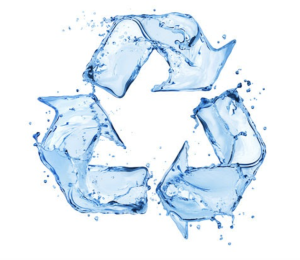Water treatment is a critical aspect of any commercial operation, impacting everything from product quality to regulatory compliance. As businesses strive to maintain high standards and operational efficiency, the importance of water quality cannot be overstated. This blog will explore the role of commercial water treatment systems, highlighting their benefits, types, industry-specific applications, and future trends. By understanding these key elements, business owners and facility managers can make informed decisions to enhance their operations.
What is Commercial Water Treatment?
Commercial water treatment involves the purification and conditioning of water to meet the specific needs of businesses. Unlike residential water treatment, which primarily focuses on making water safe for drinking and household use, commercial water treatment addresses a broader range of contaminants and requirements.
Differences from Residential Water Treatment:
Scale and Capacity: Commercial systems are designed to handle larger volumes of water.
Contaminant Range: Commercial systems target a wider array of contaminants, including industrial pollutants, heavy metals, and organic compounds.
Application Specificity: Tailored to meet the needs of different industries, such as manufacturing, healthcare, and hospitality.
Common Contaminants: Microorganisms: Bacteria, viruses, and protozoa.
Chemical Pollutants: Chlorine, fluoride, pesticides, and industrial chemicals.
Heavy Metals: Lead, mercury, arsenic.
Particulate Matter: Sand, silt, and rust particles.
Benefits of Commercial Water Treatment
Improved Product Quality
Water quality directly impacts the quality of products, especially in industries like food and beverage and pharmaceuticals. Treated water ensures that the final product is free from contaminants that could affect taste, safety, and efficacy.
Regulatory Compliance
Adhering to water quality regulations is mandatory for many industries. Water treatment systems help businesses meet standards set by regulatory bodies such as the Ofwat and local health departments.
Regulatory Overview: Compliance with water quality regulations prevents legal issues and fines, ensuring safe operations and public health protection.
Cost Savings
Investing in water treatment systems can lead to substantial long-term cost savings. Clean water reduces wear and tear on equipment, lowers energy consumption, and decreases the need for frequent maintenance.
Examples: Businesses report lower operating costs due to reduced equipment failure and energy-efficient operations after implementing water treatment solutions.
Enhanced Operational Efficiency
Clean water is essential for smooth operations. It minimises the risk of equipment malfunction, extends the lifespan of machinery, and ensures consistent production quality.
Impact: Industries experience fewer production halts and maintenance issues, leading to higher productivity and efficiency.
Common Types of Commercial Water Treatment Systems
Filtration Systems
Different filtration methods address various contaminants.
Activated Carbon: Removes chlorine, bad tastes, and odors.
Reverse Osmosis: Eliminates a broad range of contaminants, including dissolved salts and heavy metals.
Applications: Suitable for industries requiring high-purity water, such as pharmaceuticals and electronics manufacturing.
Softening Systems
Water softeners prevent scale build-up in pipes and machinery, protecting equipment and reducing maintenance costs.
Use Cases: Common in industries where hard water causes operational issues, such as laundries and car washes.
Disinfection Systems
Disinfection methods like UV treatment and chlorination ensure water is free from harmful microorganisms.
Importance: Essential for providing safe drinking water and ensuring sanitary conditions in healthcare and hospitality.
Deionisation Systems
Deionisation removes ions from water, producing highly purified water for specific industrial applications.
Benefits: Used in laboratories, electronics manufacturing, and any industry requiring ultra-pure water.
Industry-Specific Applications
Manufacturing
Water treatment maintains product integrity and protects machinery from contaminants that can cause damage and inefficiency.
Food & Beverage
Ensures the safety and quality of consumable products by removing harmful substances and improving water taste and consistency.
Healthcare
Provides safe water for medical procedures and equipment sterilization, preventing infections and ensuring patient safety.
Hospitality
Enhances guest experience by providing clean water for cooking, bathing, and drinking, contributing to overall satisfaction.
Challenges and Considerations
Implementing water treatment systems comes with challenges such as initial costs and maintenance requirements. Businesses must consider:
- System Selection: Choosing the right system based on water quality, business size, and industry needs.
- Maintenance: Regular upkeep is essential for optimal performance and longevity.
Future Trends in Commercial Water Treatment
Emerging technologies and innovations promise to further enhance water treatment efficiency and effectiveness.
Technological Advances: Smart sensors and IoT integration for real-time monitoring and automated adjustments.
Sustainability: Increased focus on eco-friendly solutions and reducing water treatment’s environmental impact.
Conclusion
Investing in commercial water treatment is crucial for businesses aiming to improve product quality, comply with regulations, save costs, and enhance operational efficiency. By understanding their specific water needs and choosing the right treatment systems, businesses can ensure their operations run smoothly and sustainably.
Assess your water quality today and consider upgrading your water treatment systems. Contact Wychwood Water Systems for a consultation to find the best solutions tailored to your business needs.





